Microbial Development and Metabolic Engineering
NREL researchers are developing both photosynthetic and anaerobic microbes for fuels and chemicals production from a variety of feedstocks.
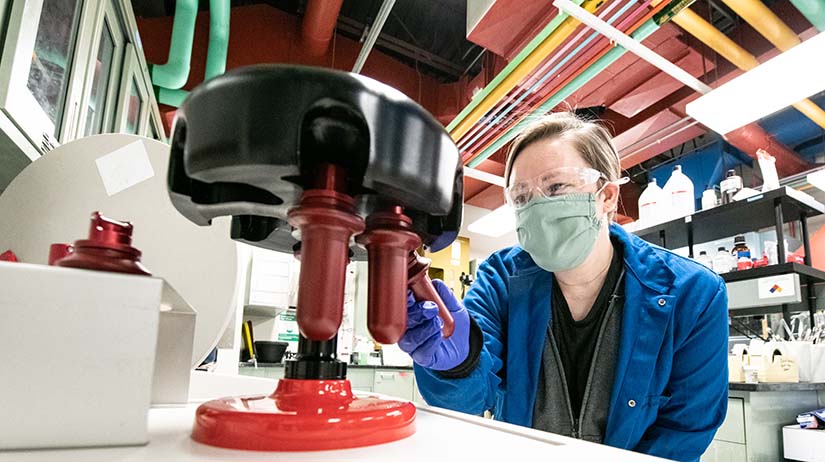
Featured Publications
A Guanidine-Degrading Enzyme Controls Genomic Stability of Ethylene-Producing Cyanobacteria, Nature Communications (2021)
Exogenous Electricity Flowing Through Cyanobacterial Photosystem I Drives CO2 Valorization With High Energy Efficiency, Energy and Environmental Science (2021)
Computational Framework for Machine Learning-Enabled 13C Fluxomics, ACS Synthetic Biology (2021)
Genome-Wide Transcription Factor DNA Binding Sites and Gene Regulatory Networks in Clostridium thermocellum, Frontiers in Microbiology (2021)
Transcriptomic Analysis of a Clostridium thermocellum Strain Engineered to Utilize Xylose: Responses to Xylose Versus Cellobiose Feeding, Scientific Reports (2020)
Developing Riboswitch-Mediated Gene Regulatory Controls in Thermophilic Bacteria, ACS Synthetic Biology (2019)
Capabilities
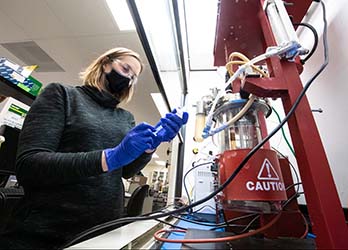
Feedstock Diversity
Our genetically engineered microbes utilize a variety of feedstock including lignocellulosic biomass, wastewater, syngas, formate, methanol, and carbon dioxide (CO2), as well as a variety of energy sources such as light and electricity. We modify metabolic pathways in Clostridium thermocellum to enable the co-utilization of both cellulose and hemicellulose and improve hydrogen (H2) as well as hydrocarbon-based biofuels production. By engineering a heterologous ethylene production pathway, we have enabled Synechocystis 6803 to convert CO2 to this top platform chemical through photosynthesis. We also valorize liquid and gaseous one-carbon, waste molecules such as formate, methanol, carbon monoxide (CO), and CO2 to mid-chain length carbon products such as butyrate, butanol, and precursors to commodity chemicals (e.g., 3-hydroxybutyrate), which is accomplished by acetogens such as Clostridium ljungdahlii. Via improving hydrogenase and RuBisCO (Ribulose-1,5-bisphosphate carboxylase/oxygenase) enzyme activities, we have enhanced CO2 fixation in the chemolithoautotroph Ralstonia eutropha using H2 as the growth substrate.
Contact: Katherine Chou
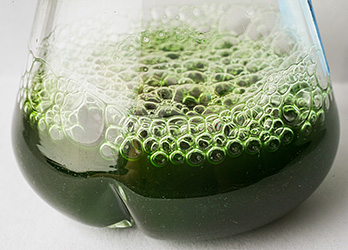
Synthetic Biology
We utilize the power of synthetic biology to regulate gene expression and pathway flux to improve biofuels and chemicals production in a variety of microbes. Recent successes include the novel application of riboswitches (structural RNAs) to finely tune gene expression levels in industrially relevant microbes (C. thermocellum), development and use of native and synthetic promoters and ribosomal binding sites to optimize expression of heterologous proteins (Synechocystis 6803), implementing CRSPR/Cas to modify strains (C. ljungdahlii). Biocontainment strategies are being developed and approached with novel synthetic biology designs to improve biosecurity related to engineered microbes.
Contacts: Katherine Chou, Jianping Yu, Wei Xiong
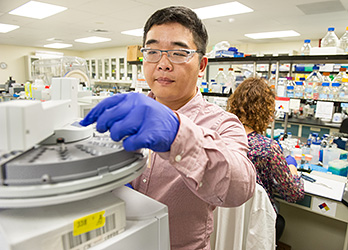
Systems Biology
Our comprehensive systems biology capabilities include using 13C-isotope tracers for metabolic flux analysis, genome (re)-sequencing and annotation, transcriptomic analysis via RNA-sequencing, elucidating gene regulatory networks, shot-gun and 2-D gel proteomics, protein interaction network, liquid chromatography-mass spectrometry- and gas chromatography-mass spectrometry-based metabolomic analysis. Recently, our isotope-based fluxomics analyses have led to discoveries of novel carbon fixation and conservation pathways in cyanobacteria and in C. thermocellum. Machine learning and artificial intelligence tools are developed to model and predict phenotypes as well as improving the computational efficiency in the development of predictive models.
Contacts: Wei Xiong, Chao Wu, Katherine Chou

Genetic Systems
We have developed genetic systems and improved transformation efficiencies in microbes, including cyanobacteria, C. thermocellum, C. ljungdahlii, and Butyribacterium methylotrophicum. Our successes include (1) the development of a thermostable and replicating shuttle vector to stably express genes of interests and achievement of markerless and targeted gene deletion in the thermophilic bacterium C. thermocellum; (2) improvement of genetic tools for the integration of deletions/heterologous genes in the cyanobacteria Synechocystis sp. PCC 6803, C. ljungdahlli, and B. methylotrophicum. We are continuously exploring and creating novel and broad host range tools tailored for individual gene knockout, control of gene expression, and metabolic strain engineering of diverse microbes.
Contacts: Katherine Chou
Research Team
Principal Investigators
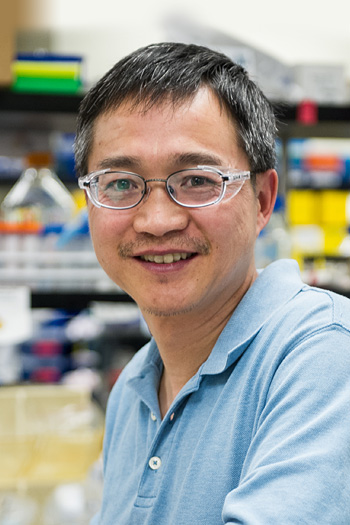
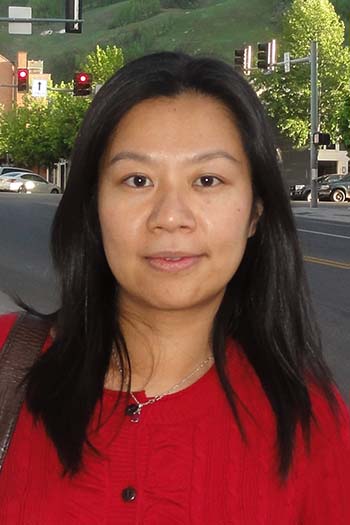

Jacob Sebesta
Jonathan Humphreys
Skyler Hebdon
Trevor Croft
Bin Yang
Related and Integrated Programs
Algal Biofuels Techno-Economic Analysis
Enzyme and Microbial Development
Collaborators
Shell
Gross-Wen Technologies
Kiverdi, Inc.
Lawrence Berkeley National Laboratory
Pacific Northwest National Laboratory
Argonne National Laboratory
University of California at Los Angeles
University of Colorado at Boulder
Vanderbilt University
Share
